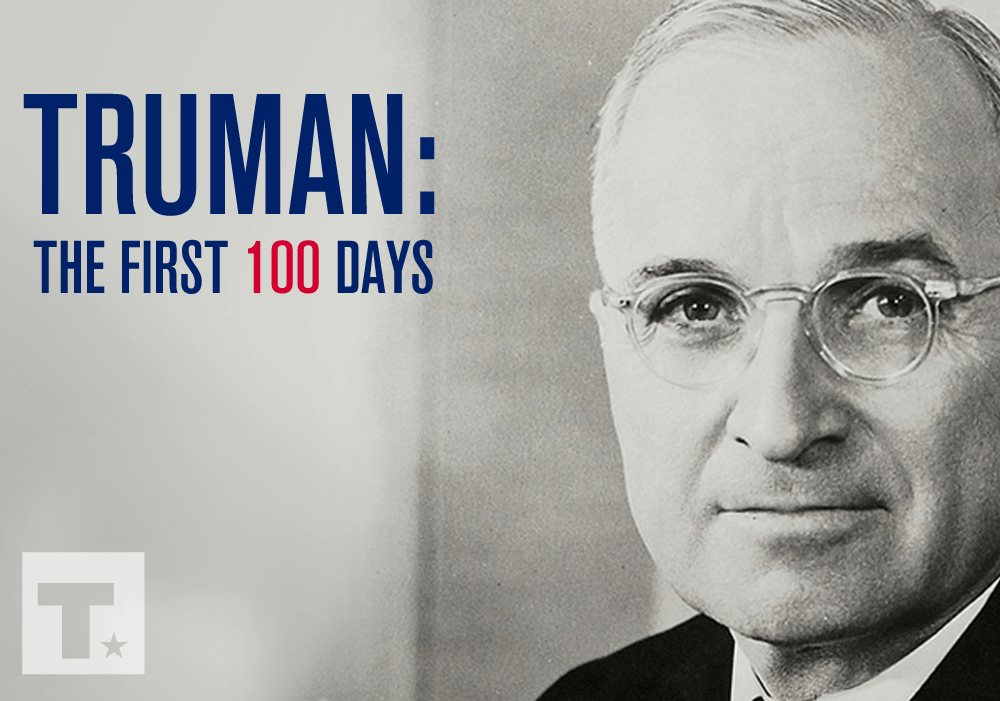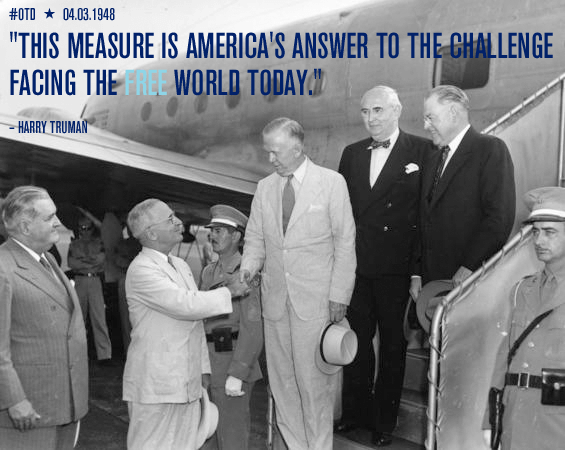Truman’s First 100 Days | April 27, 2017
On April 12, 1945, Harry S. Truman became president of the United States. The following day, President Truman told reporters that he “felt like the moon, the stars, and all the planets had fallen on me.”
President Truman’s first 100 days in office were a whirlwind of activity, including the end of the war in Europe, planning for the postwar world with other world leaders gathering at Potsdam, the successful testing of the first atomic bomb, the establishment of the United Nations, and planning for the end of the war in the Pacific. No small feat for a man who had only met with President Roosevelt twice during his 82 days as vice president, and didn’t even know about the existence of the bomb.
In addition to overseeing and planning the end of a two-front war and planning the peace, Truman also issued 52 executive orders, delivered 10 proclamations, held 14 press conferences, and received one honorary degree. In order to maintain the incredible pace of the presidency and be prepared for the decisions he had to make as Commander in Chief, Truman spent every night reading countless memos and files in his private study in the White House. No wonder Harry Truman said that “Being president is like riding a tiger. You have to keep riding or be swallowed.”
Read on for some TRU-firsts from the president’s first 100 days.
Read More

Wild About Harry 2017 | April 24, 2017
Annual Event Celebrated Truman’s Civil Rights Legacy
What an incredible evening! The 18th Annual Wild About Harry was an unforgettable event celebrating the Civil Rights legacy of Harry Truman that raised over $500,000. We were so inspired by the stories of Rep. James Clyburn, Rep. John Lewis and Calvin Trillin, and we were inspired your generosity.
If you were as inspired as we were by this event, feel free to share the following graphics on social media:
Read More
From the Desk of Harry S. Truman: Signing the Foreign Assistance Act | April 3, 2017
Statement by the President Upon Signing the Marshall Plan
On April 3, 1948, Truman signed the Foreign Assistance Act, which provided an initial grant of $4 billion to Western Europe. By the time the program came to an end nearly four years later, more than $12 billion in foreign aid had been expended. Although the Marshall Plan had its flaws, including rampant inflation in some areas, it provided some much-needed stability and stimulation for the economies of Western Europe. British Foreign Secretary Ernest Bevin described the Marshall Plan as “a lifeline to sinking men.” Truman issued the following statement after signing the landmark legislation:
Read More


